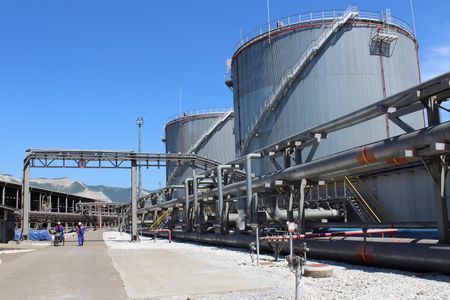MOSCOW (Reuters) – Western oil tankers ramped up their shipments of Russian crude in January as prices for Moscow’s flagship Urals grade held below an international price cap, according to market sources and Eikon data.
The Group of Seven nations (G7), Australia and the 27 European Union countries placed a price limit on Russian crude oil of $60 per barrel on Dec. 5.
The cap allows non-EU countries to import seaborne Russian crude oil, but prohibits Western shipping and insurance companies from handling cargoes of the crude unless it is sold at or below that price.
Most Russian oil currently trades below that level, with seaborne Urals crude quoted at $49.50 a barrel on a free-on-board basis from Primorsk on Tuesday, and at $47.83 FOB from Novorossiisk.
Crude oil loadings from Primorsk, Ust-Luga and Novorossiisk this month are on track to hit a multi-month high above 9.5 million tonnes, supported by solid Asian demand, an oil price rally and greater tanker availability, traders told Reuters.
Oil loadings from Russia and Kazakhstan via Primorsk and Ust-Luga will rise to the highest level since 2019 at 7.4 million tonnes in January, export plans and traders’ data showed.
EU-owned vessels, primarily from Greece, handled more than 2 million tonnes of Urals crude from Baltic and Black Sea ports in January, over a quarter of Russia’s exports from these ports.
The volume moved by EU ships is nearly twice as much as in December, Reuters calculations based on Eikon and information shared by traders showed.
Russia’s Energy Ministry and Ministry of Transport declined to comment. Russia has said it will not accept an oil price cap.
GREEK RELIEF
Greek-owned ships run by Greek management firms handled at least 21 voyages of Russian crude in January to a range of destinations.
The Greek shipping companies included TMS Tankers Management, Stealth Maritime, Kyklades Maritime, Dynacom, Delta Tankers, NGM Energy and New Shipping, according to Refinitiv Eikon ship tracking and shipping sources.
NGM said its tanker, the Ace, had discharged crude oil in Bulgaria.
“Any oil shipments for outside the EU performed post Dec. 5 are permitted and authorised by the EU as they comply with the G7 price cap mechanism,” a company official said via email.
“In all circumstances we ensure compliance per EU regulations with the use of external independent third party legal counsel to vet all legal documents,” the official added.
The other companies did not respond to requests for comment on the specific voyages.
The Karolos tanker, managed by Dynacom, loaded Russian crude at Russia’s Baltic port of Ust-Luga in January and is due to discharge the oil in Sikka, India by Feb. 3, according to Eikon ship tracking.
Similarly the Lovina, managed by TMS Tankers, loaded crude at Russia’s Primorsk port in January and is also sailing to India.
Late in December Russian president Vladimir Putin signed a decree banning the supply of crude and refined products from Feb. 1 for five months to nations abiding by the cap.
On Monday Moscow released the legal framework backing this decree that includes a ban on deliveries to foreign entities involved in any price limits, and a ban on the inclusion of any price cap mechanism in contracts.
(Reporting by Moscow reporters; Additional reporting by Jonathan Saul, Noah Browning and Julia Payne in London; Editing by Jan Harvey)

